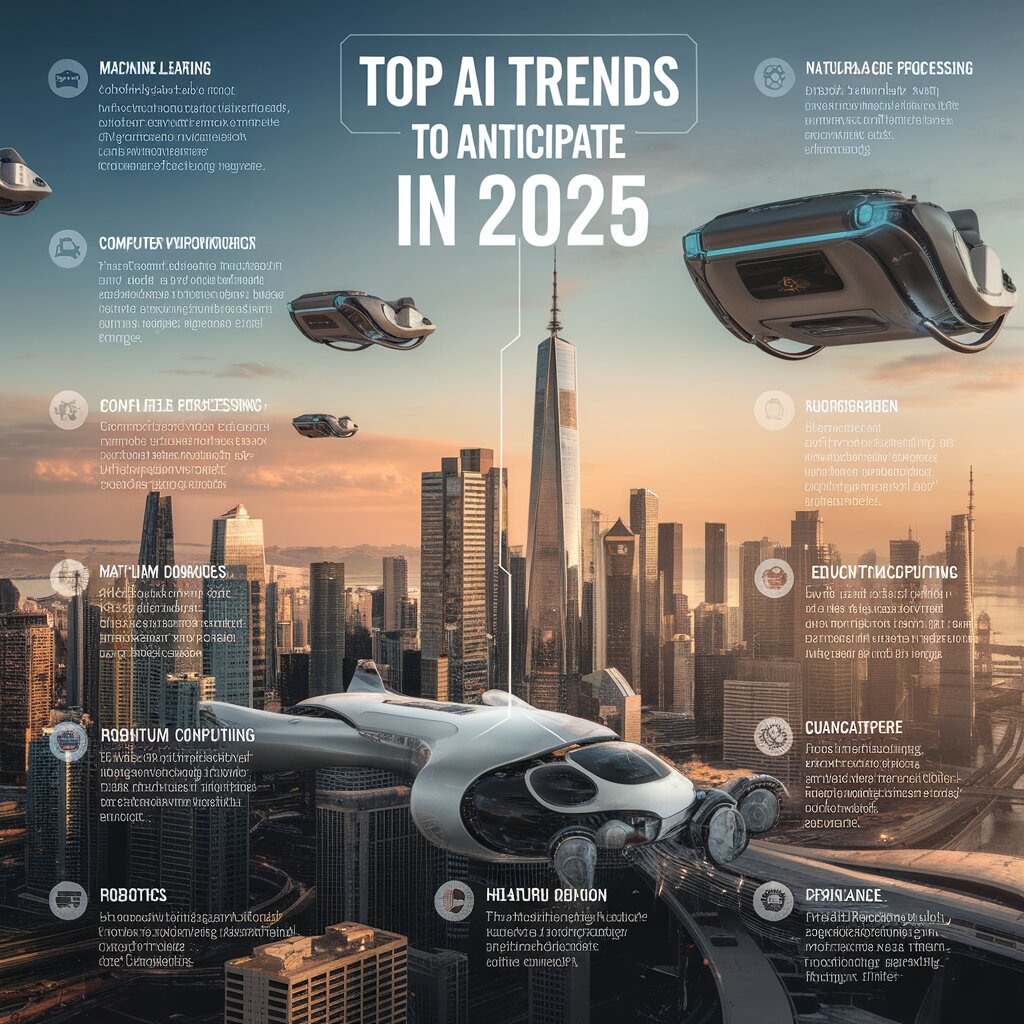Artificial intelligence (AI) is poised to remain the most transformative technology as we head into 2025. Embedded in every waking moment from office spaces to homes, its comprehensive integration signals a future where AI is omnipresent, multifaceted, and crucial.
Augmented Working: Collaborative Intelligence
With every significant software integrating generative AI tools this year, 2025 will see a more refined approach to AI-human collaboration. Businesses are likely to shift from the current wave of chatbot integration to more strategic uses of AI that enhance human technical capabilities. This evolution will help free human talent for creative and interpersonal tasks that machines struggle to replicate, offering a route to genuine value creation.
Real-Time Automated Decision-Making: Efficiency Unleashed
As companies get a firmer grip on AI, we expect end-to-end automation to streamline business operations dramatically. Sectors like logistics, customer service, and marketing will harness algorithms for immediate decision-making. This real-time capability can empower companies to manage inventories more efficiently, respond swiftly to customer inquiries, and adapt rapidly to market shifts.
Responsible AI: Ethics at Its Core
The year ahead will place significant emphasis on developing AI systems that are ethical, transparent, and secure. As awareness of AI biases and hallucinations grows, the demand for responsible AI will intensify. Companies cutting corners can expect severe backlash—not just from regulatory bodies but also from a more informed public that values ethical AI use.
Generative Video: Imagination Brought to Life
Envision typing a movie plot and seeing it materialize. While extensive film production might still be out of reach, 2025 could see the rise of generative video technologies. OpenAI’s Sora model gives us a glimpse of what’s to come, heralding new possibilities for AI in video content creation.
Next-Gen Voice Assistants: Conversational AI
Voice assistants like Siri and Alexa will transcend their current limitations. OpenAI’s advanced voice mode for ChatGPT demonstrates that future voice assistants could engage in more human-like conversations. As Google integrates its Gemini chatbot into mobile devices, we can look forward to significantly improved voice-to-voice communication capabilities.
AI Legislation And Regulation: Governance Catches Up
Governments worldwide are beginning to craft legislation to manage AI’s risks. The EU and China have passed landmark laws to curb potential misuse, and more regulations are likely to follow. These will focus on preserving human rights and minimizing risks like discrimination and disinformation.
Autonomous AI Agents: Beyond Simple Tasks
Moving beyond performing isolated tasks, future AI agents will be capable of stringing together multiple tasks autonomously. This development could bring us closer to achieving “general” AI, but it necessitates a robust framework for oversight and accountability.
Navigating A Post-Truth World: Combatting Disinformation
The proliferation of AI-generated fake content poses a tremendous challenge. In 2025, societal efforts—driven by legislation and grassroots movements—will aim to tackle disinformation. Education will play a key role in helping the public engage more critically with the information they consume.
Quantum AI: A Leap Forward
Though still nascent, the promise of quantum computing in AI is immense. This technology could execute tasks at speeds unfathomable by current standards, advancing capabilities in diverse fields from medicine to new energy sources. Expect 2025 to renew excitement around quantum AI’s transformative potential.
AI In Cybersecurity And Defense: Proactive Protection
As cyber threats evolve, AI will become critical in identifying and neutralizing them proactively. Enhanced AI systems will automate cybersecurity measures and deal with threats before they cause significant damage. Moreover, innovative AI applications will simulate phishing attacks and educate people on avoiding scams.
Sustainable AI: Eco-Friendly Innovations
The dual aspects of sustainable AI involve reducing the massive power consumption of AI systems and leveraging AI for environmental improvements. From optimizing agricultural practices to reducing urban traffic emissions, AI’s role in sustainability will widen, positioning it as a vital tool for environmental stewardship in 2025.
AI’s trajectory for 2025 promises advancements that are both exciting and challenging, urging us to navigate its integration thoughtfully and responsibly.


